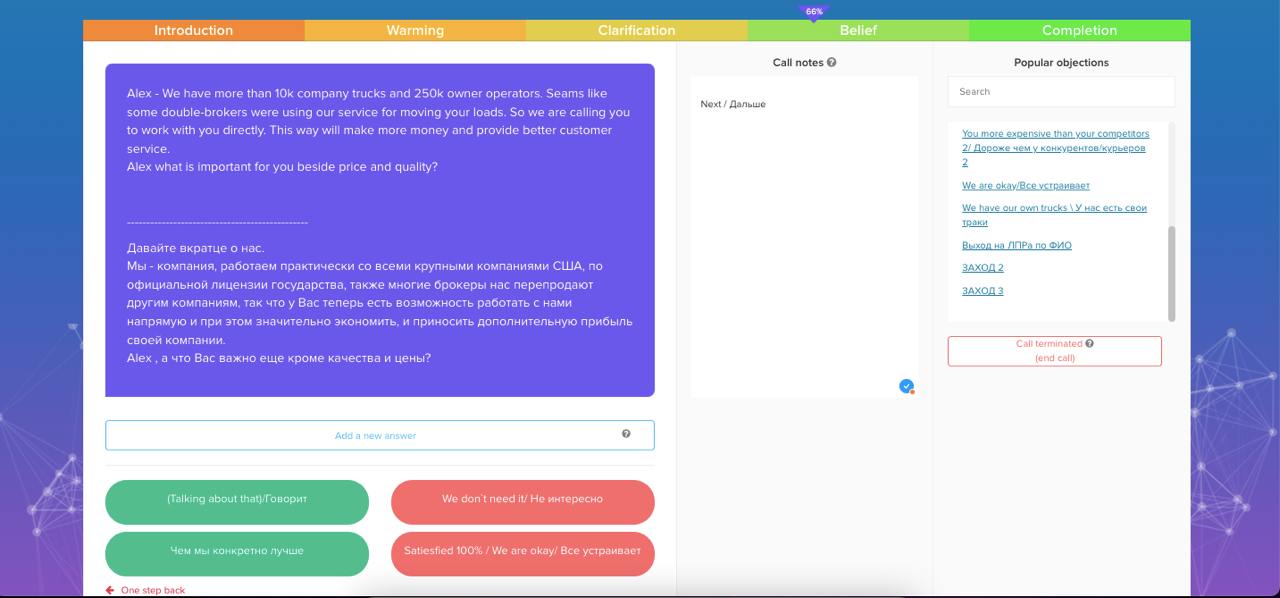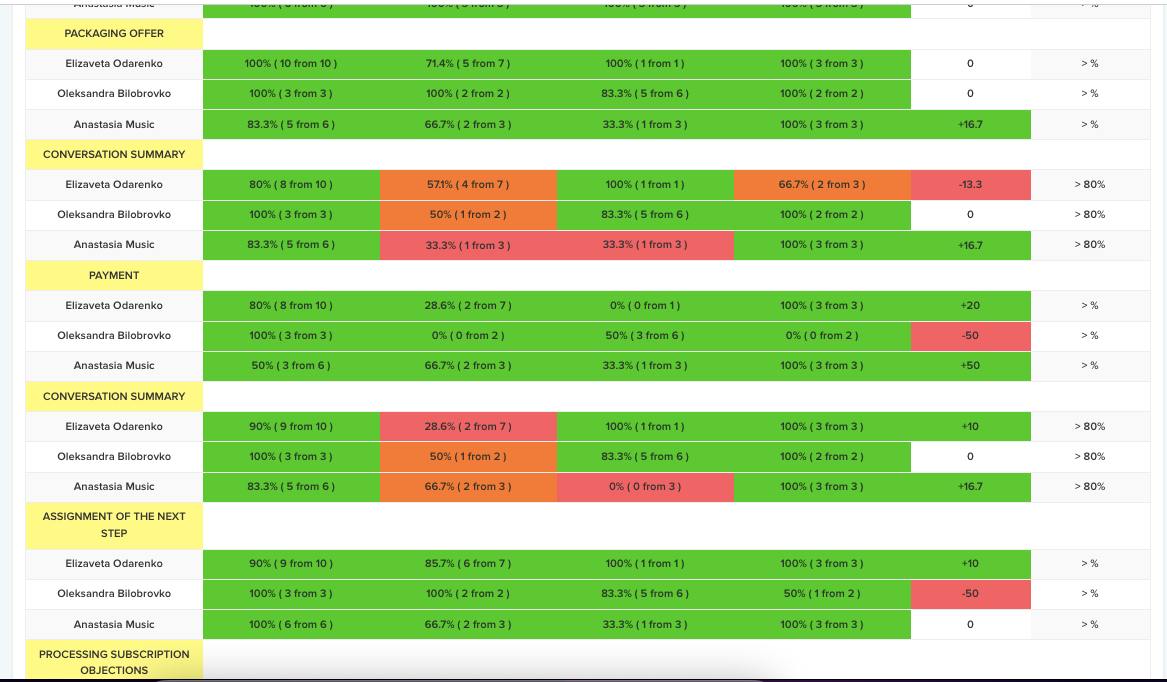Why the hell do you need to call quality control?
How can you completely transform your sales department?
As an entrepreneur and owner of a consulting company, I’ve seen firsthand the massive pain businesses go through when trying to build or scale a sales department. A sales department is not just a bunch of people willing to sell (and even hiring a Head of Sales doesn’t cut it). It’s a complex, multi-stage project that requires deep thought: a plan, detailed business processes, scripts, and quality control systems.
How do you build or scale a sales team?
1. Define your goals and objectives.
You need to be crystal clear on why the hell you’re doing this: are you building from scratch or scaling? What’s not working in the company? What should work better? What are your expectations? How quickly will you get ROI? How will you measure results? What do you want: boost sales volume, increase conversion, reduce acquisition costs, improve service quality, tweak your business model (add B2C/B2B), or expand into new markets? The main thing — your goals should be clear and achievable.
2. Describe your sales processes.
Understand your product, client persona, sales channels, and the customer journey (CJM). Even a high-level overview is better than nothing. Once you map out the CJM, break it into processes, stages, and funnels. Create metrics for each. Remember: well-structured processes can cut your HR costs by 2-3x.
3. Develop sales scripts.
Scripts ensure consistency and execution of key sales stages. A well-written script = 60% of success. But don’t make them rigid, outdated, or soulless. Respect real, human needs. Address customer pain points. Be flexible. Use your imagination. Stay updated with trends and relevant data. To start: record your own calls (at least 5 per client type), transcribe them using AI, and turn them into scripts.
4. Hire and train your team.
Define the roles in your sales process first (e.g., assistant, opener, hunter, closer, consultant). Then work on who exactly you need to hire. Otherwise, you won’t build your dream team that runs like Swiss clockwork. Once hired — onboard and train. Everyone should understand company values, your products/services, and the core sales principles.

5. Automate the sales department.
If the process is described — automation is easy. Besides funnels, metrics, and scripts, you’ll likely need deal cards, customer profiles, and possibly detailed automation plans (e.g., invoicing, estimates, contracts, email flows). Don’t forget to map out all client touchpoints and plug them into your CRM. Oh, and if your salespeople use their personal phones — you’re at high risk of losing all your clients. Connect business telephony and monitor what your people are saying. No CRM or you don’t use it? Then forget about stats, customer lifetime value (LTV), quality control, or those deals that were lost and forgotten — you won’t even know where things went wrong, or how to fix it. You’ll never be able to answer: how do I grow profits and scale my company?
6. Set up quality control.
At this point, it should be clear: define call types, break them down into stages, create a checklist, test real calls and build the ideal model. Then update your checklist accordingly. Or better: send us 5 recordings — and we’ll show you how our AI call analyzer works in real time.

So what’s the real problem with sales departments and how do you control it?
Every step comes with challenges: fragmented control, no way to objectively evaluate employees in real time. No Head of Sales can physically listen to all those damn calls. And quality control? Often subjective, full of mistakes. When the workload grows, the human factor becomes a brutal liability. Employees burn out, talk nonsense, drift from your company’s standards. Especially in the U.S., where in-office staff is insanely expensive, it becomes obvious: hiring remotely is way cheaper. Why keep reps and managers offline when you can build a virtual sales office anywhere in the world and give people the right tools? That’s where AI-powered speech analytics changes the game. It solves quality control at the root. It’s a gift to overwhelmed founders trying to escape operations — and to desperate Heads of Sales drowning in call reviews and reprimands. No human factor in training or monitoring. The AI controller analyzes every stage of the conversation, flags pauses and intonation, and gives a summary with recommendations immediately after the call. It identifies hidden patterns in both employee and customer behavior. For example, AI can detect when a rep isn’t following the script — or when a specific sales approach leads to success (or failure). As a result, each next call gets better. AI generates reports per rep — daily, weekly, whatever — and can even send insights via Telegram. Add a smart supervisor, partner, or founder who actually understands sales on top of this — and now you’ve got a winning formula. New hires get up to speed faster. Existing reps grow like crazy (and by the way — it’s way cheaper to upskill current staff than constantly hire new people). Plus, an AI trainer can prep reps on scripts, so they don’t start Monday cold — they’re already warmed up. Dashboards show full call stats and pinpoint weak spots in your sales: Not presenting the company? Not taking control of the convo? Failing to upsell? It’s like tracking the temperature, pressure, and humidity of your processes. Feel that? Never done this in sales before? What the f*** have you been waiting for? AI flips the script on how you build, diagnose, and scale a sales team. Don’t waste another minute. Book a demo now and let’s start working with you personally. There’s not enough time (and not even AI can fix that).